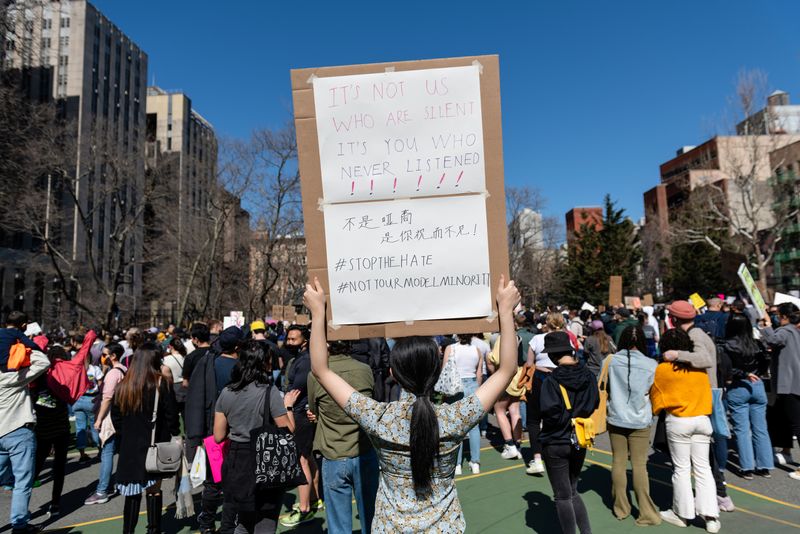By Kanishka Singh
WASHINGTON (Reuters) - Online hate against Americans of South Asian ancestry has risen steadily in 2023 and 2024 with the rise of politicians from that community to prominence, according to a report released on Wednesday by nonprofit group Stop AAPI Hate.
WHY IT'S IMPORTANT
Democratic presidential candidate and Vice President Kamala Harris is of Indian descent, as are former Republican presidential candidates Nikki Haley and Vivek Ramaswamy. Republican vice presidential candidate JD (NASDAQ:JD) Vance's wife, Usha Vance, is also Indian American.
Harris faces Republican former President Donald Trump in the 2024 U.S. elections.
There has been a steady rise in anti-Asian hate in extremist online spaces from January 2023 to August 2024, the report said.
The nonprofit group blamed the rise on a "toxic political climate in which a growing number of leaders and far-right extremist voices continue to spew bigoted political rhetoric and disinformation."
KEY QUOTES
"Online threats of violence towards Asian communities reached their highest levels in August 2024, after Usha Vance appeared at the Republican National Convention and Kamala Harris was declared a presidential nominee at the Democratic National Convention," Stop AAPI Hate said.
"The growing prevalence of anti-South Asian online hate ... in 2023 and 2024 tracks with the rise in South Asian political representation this election cycle," it added.
BY THE NUMBERS
Among Asian American subgroups, South Asian communities were targeted with the highest volume of anti-Asian online hostility, with 60% of slurs directed at them in that period, according to the report.

Anti-South Asian slurs in extremist online spaces doubled last year, from about 23,000 to more than 46,000, and peaked in August 2024.
There are nearly 5.4 million people of South Asian descent living in the United States, comprising of individuals with ancestry from nations including India, Bangladesh, Bhutan, Nepal, Pakistan and Sri Lanka.
